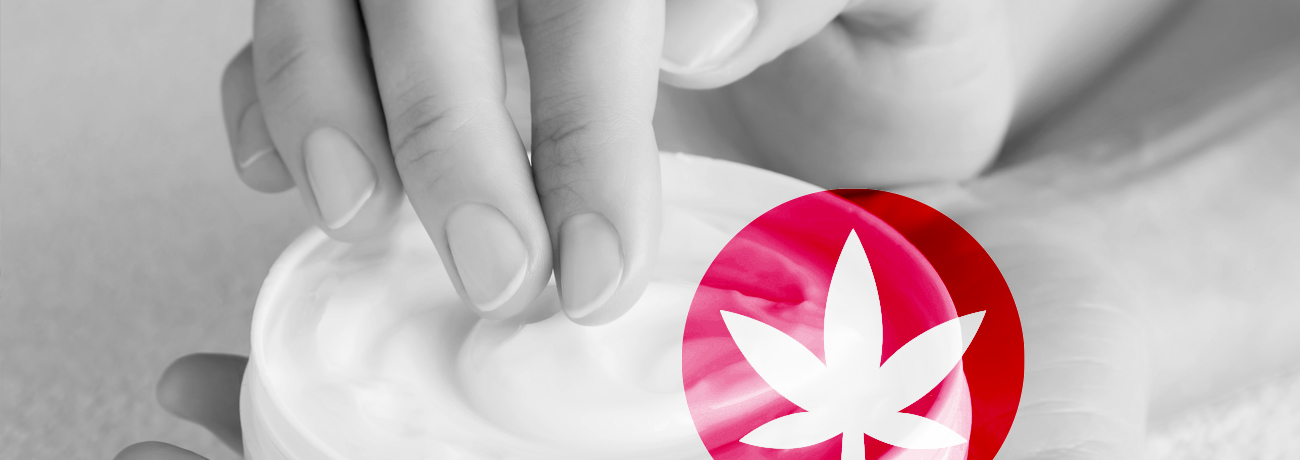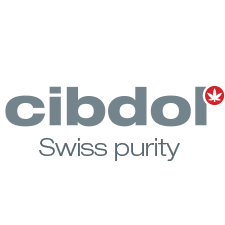How Does CBD Affect The Skin?
Last updated:
Published:

Cannabidiol (CBD) is gaining traction as one of the most exciting cannabinoids used for a wide range of novel supplemental and therapeutic applications. As researchers continue to understand how the human endocannabinoid system responds to CBD and other cannabinoids, a slew of new uses have been potentiated regarding CBD's affects on the skin.
Boasting diverse benefits when included as an ingredient in various products, CBD has the power to strengthen the skin’s natural defenses. It has also recently been included as a method for combating the symptoms of dry and oily skin, as well as certain inimical skin conditions. CBD’s potency lies in its purity as an all-natural ingredient whose effects are superior in the presence of supportive elements.
WHAT IS CBD?
Cannabidiol has long been put on the back burner to psychoactive cannabinoids secreted in hemp plants. CBD is found in its highest concentrations in the resinous heads of trichomes - tiny hair-like structures on flowers that are responsible for producing the plant's essential compounds.
CBD is the second most abundant cannabinoid found in hemp with natural concentrations averaging around 1%. Hemp plants can be selectively bred to include much higher levels of CBD, increasing its potential use in skincare formulas.
For many decades, CBD was not extensively studied because it was assumed to be devoid of medical benefits. Also, CBD is non-psychoactive, which made it much less interesting to researchers until recent years. As a psycho-inactive cannabinoid, CBD neither induces a body or mind high and does not disturb one's present sense of reality.
In fact, it wasn’t until just a few years ago that CBD products first started becoming available for legal purchase, despite their lack of negative side effects. Now that CBD has been proven to be safe and is gathering steam as a truly effective remedy for numerous conditions, there is nothing standing in the way of its dominance in the arena of skincare.
WHAT IS ENDOCANNABINOID SYSTEM?
To understand the science behind CBD, you must first obtain a general understanding of the human endocannabinoid system. Known in full as the endogenous cannabinoid system, it helps to maintain homeostasis within the body in reference to regulating pain, memory and other bodily processes.
The substances anandamide and 2-AG represent the molecules synthesised in the endocannabinoid system, which bind to receptors CB-1 and CB-2 in different areas around the body. In addition to stimulating areas of the brain, the endocannabinoid system has many receptors in the skin. This is part of what makes CBD so effective - it naturally interacts with the human body to spur a course of physiological benefits in effort to maintain total homeostasis.
CBD FOR THE SKIN
So, what exactly does CBD do for the skin? The answer to that question is multi-pronged as cannabidiol sustains a number of beneficial processes on both healthy and damaged skin cells. Some areas of research regarding CBD’s specific outcomes are well-studied, while others are just starting to break out into the mainstream.
ANTI-INFLAMMATORY
A topic of CBD research which has gained near-unanimous support is CBD as an anti-inflammatory substance. Many studies have come out backing these claims, citing specific findings including one from 2010 which found CBD to suppress inflammatory cytokines and chemokines.
What does all of this have to do with skin? Essentially, everything from daily epidermis irritation to full-blown skin conditions is instigated or worsened by inflammation. CBD shows incredible potential in reducing the skin’s inflammatory response - soothing regions of the skin which have been compromised. CBD as an ingredient in skin creams is a booming trend given its vast capacity in topical and ingestible methods.
CBD’s anti-inflammatory effects on conditions such as eczema and psoriasis have just emerged into the spotlight. CBD is shown to block interleukins and prevent the formation of psoriatic plaques. Now, there are products which use formulations of CBD and other ingredients to nurture the skin naturally.
PROMOTES PROPER CELL PROLIFERATION
Another way CBD shows promise in nurturing the skin is by promoting proper cell proliferation and differentiation. Its powerful properties as an antioxidant outperform its widely used counterparts and is now used in anti-aging creams. For sufferers of specific skin conditions, CBD may be particularly useful as it encourages more efficient cell differentiation.
INHIBITS OVERACTIVITY OF SEBACEOUS GLANDS
A key trigger of the skin condition acne-vulgaris is overactive sebum production. A recent study found CBD to pose a “trinity of cellular anti-acne actions,” including its potential in reducing sebum. In essence, the antiproliferative nature of CBD on sebocytes helps to limit lipid production and therefore restrict sebum overproduction.
The potential application of CBD for its use in nourishing acne symptoms is extremely exciting, considering that it is one of the most commonly experienced skin diseases worldwide. Acne contains obvious physical symptoms culminating in pimples, blackheads and cysts, but it also causes psychological strain as well.
There is further suggestion of CBD as an antibacterial substance. Acne-causing bacteria contribute to a cycle of breakouts that can be hard to stop, but CBD shows promise in diminishing the infection and inflammation. For all individuals, CBD’s antioxidant properties are specially suited to fight the effects of free radical damage and encourage healthier feeling skin.
CBD AND THE FUTURE OF SKINCARE
The more CBD is observed as a subject in skincare studies, the more it is potentiated in actually treating numerous skin diseases. It is too early to say with confidence exactly how CBD can be used in medical skin treatments, but at the very least, there is clear indication of cannabidiol's numerous benefits for the skin.








.png)




